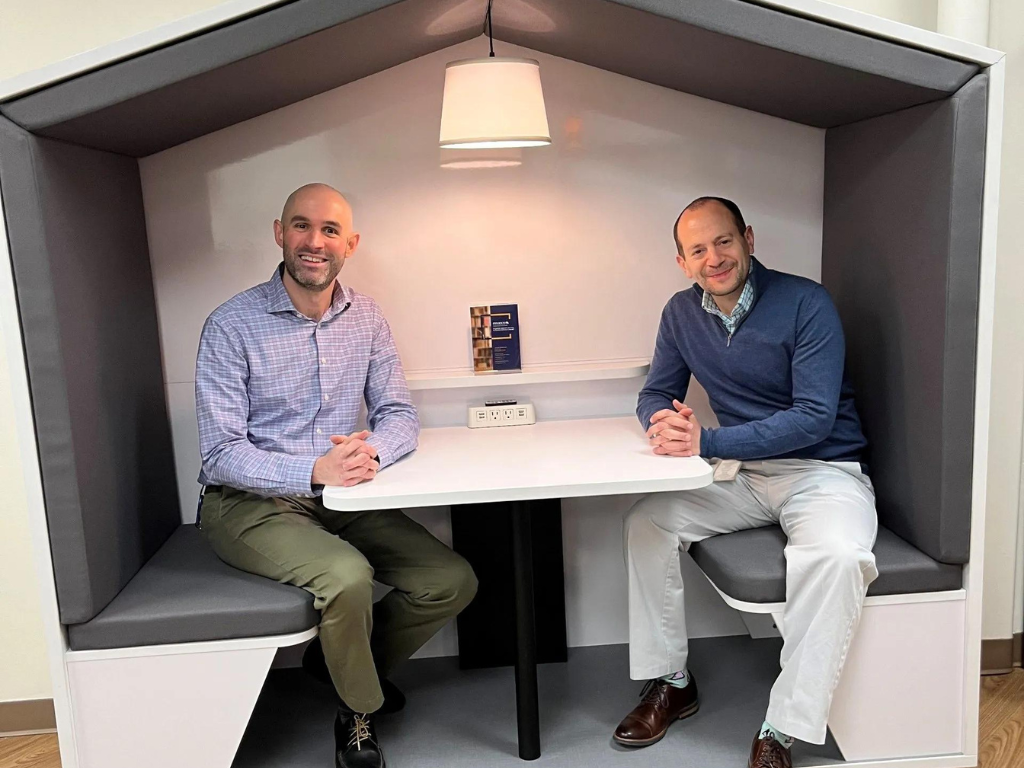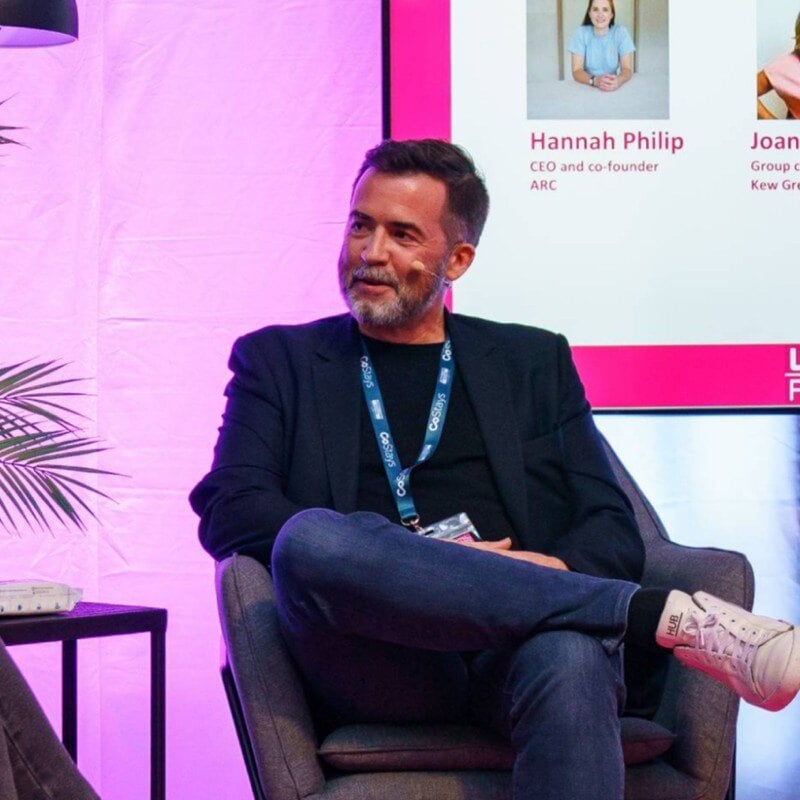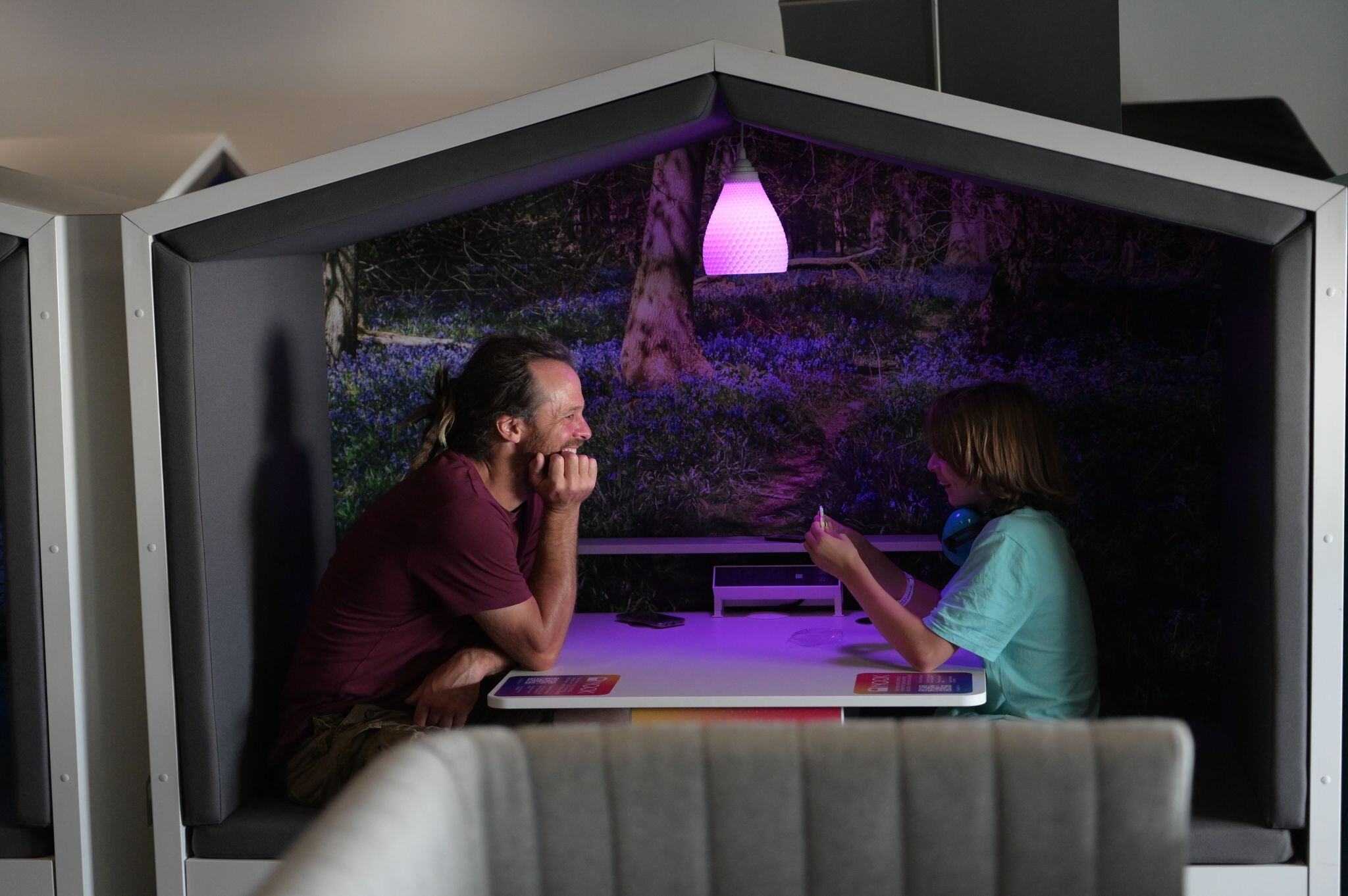Client: New York State Regional Education Service Agencies (PNW BOCES)
Challenge: Creating supportive microenvironments for independent and small group work in educational settings, especially in the post-pandemic era.
Background
Fred Ende, Director of Curriculum and Instruction for the Putnam/Westchester region in New York, oversees educational services for 50 school districts. His team faced a unique challenge: while their facilities featured beautiful conference rooms for large gatherings, they lacked appropriate spaces for smaller, more intimate breakout groups. Educators often found themselves retreating to hallways or the professional library for discussions, which was far from ideal. Ende and his team sought a solution that would provide these educators with versatile and meaningful spaces, marking the beginning of their journey with Nook.
The Search for a Solution
The team explored various options for portable breakout spaces and conducted research to identify products that would best meet their needs. Their search led them to NeoCon, an annual office furniture exhibition in Chicago, where they discovered Nook. Intrigued by the design and functionality of Nook's products, Ende saw immediate potential in their application within PNW BOCES.
Nook’s products are designed to enhance existing spaces, offering mobility, endless customisation, and support for various activities. Ende's vision of how Nook could integrate into their facilities led to a partnership with Nook, where they piloted the Nook Solo and Nook Huddle units.
Implementation and Impact
The Nook Solo, a single-user pod with a door, provides a contained space perfect for focused work. Equipped with ultra-quiet fans that refresh the air 1.5 times per minute, the Solo offers a fresh and private environment. The PNW BOCES team placed a Nook Solo on their main campus, anticipating it would be useful for phone calls and private meetings.
The Nook Huddle, designed for small group interactions, was placed in a school setting. This pod is a Certified Autism Resource, offering features that minimise sensory stimuli, such as adjustable lighting and sound-dampening materials. The Huddle’s design includes a house-like roof and upholstered walls, creating a comforting, supportive space.
During the month-long trial, the response was overwhelmingly positive. Teachers scheduled times to use the Nook for planning meetings and private conversations during prep periods. Students, too, benefited from the Huddle’s supportive environment, using it for one-on-one discussions with teachers or as a quiet place to reset. The controlled, defined space offered by the Huddle provided an alternative to the distracting and often overwhelming atmosphere of traditional school settings.
Unexpected Benefits and Customisation
The PNW BOCES team was pleasantly surprised by the range of benefits provided by the Nook pods. The pods not only met their need for microenvironments but also became an invaluable asset. Ende noted, "Our Nooks were exactly what we needed to create the microenvironments we had envisioned. The pilot program allowed us to form an attachment with our Nooks, and they are invaluable." The team customised their Nooks with upholstery in school colours and added whiteboards, enhancing their functionality and integration into the school’s work environment.
Conclusion
Nook’s flexible and intuitive design proved to be a perfect fit for educational settings, supporting both teachers and students in various ways. The PNW BOCES case demonstrates how neuroinclusive design in office furniture can create spaces that cater to diverse needs, enhancing focus, comfort, and overall wellbeing. As educational institutions continue to evolve, products like Nook’s wellness pods and booths offer innovative solutions that adapt to changing demands and improve the educational experience for all.



.png)
.png)
